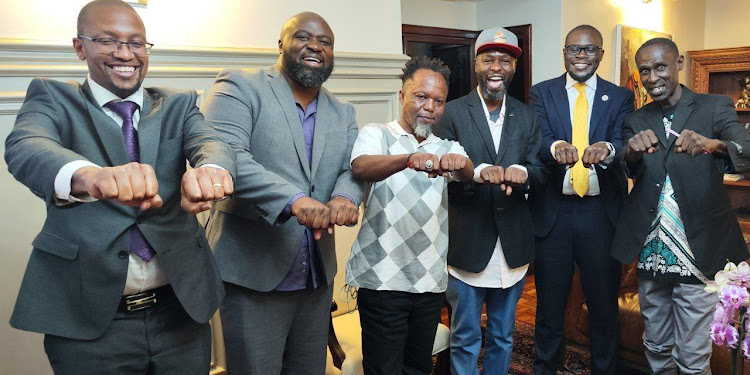Nairobi Governor Johnson Sakaja held a meeting with the iconic Kenyan music group Kalamashaka at his office. The trio, consisting of Kama (Kamau Ngigi), Roba (Robert Matumbai), and Johnny Vigeti, gained prominence in the mid-90s and continued to influence hip-hop culture into the early 20s.
During their meeting, Kalamashaka discussed youth issues and updated the Governor on their projects in Dandora. Sakaja expressed his pleasure in catching up with the group and acknowledged their work with the youth, stating, “Great catching up with @kshakaofficial as they updated me on the work that they’re doing with the youth in Dandora. God awabless.”
The group, along with the Governor, had previously met during the opening of Dandora Stadium. They shared the historical significance of Dandora Stadium as the birthplace of Kalamashaka and expressed gratitude to Governor Sakaja for revitalizing the stadium. In a post, they wrote, “Many people don’t know that Dandora Stadium was the birthplace of what y’all came to know today as Kalamashaka #Kshaka. Much appreciation to our Hon. Governor @jsakaja for giving back life to this historic and majestic place that is Dandora Stadium.”
In another post, Kalamashaka expressed pride and gratitude for Governor Sakaja’s continuous support throughout the years. They highlighted the Governor’s generosity in gifting the Dandora community a brand new stadium, extending their blessings to him.





